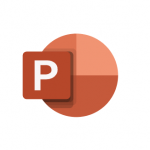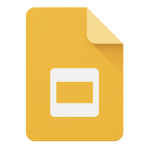As we inch closer to the start of the fall ’21 semester, you’ve probably got a mile-long checklist of things to prepare. But before you update that web page, or publish that PDF document, or launch that form, or build that online course, have you thought about accessibility?
Learning Environments has got you covered with a new round of workshops that includes topics on accessible design essentials, PDFs, Microsoft Word and PowerPoint, video captions, and Universal Design for Learning (UDL). Check out the schedule and sign up using the registration links below.
For a full list of all of the upcoming Learning Environments workshops, check out the Digital Teaching and Learning Workshop Calendar.
Fall ’21 Kick-off Workshop Schedule
Basic Accessibility Design Principles
Description:
Learning a handful of simple accessible design principles can have a huge impact on a wide range of the digital content you create and share, including web pages, PDFs, Word documents, presentations, videos, social media, communications, and more. In this one-hour presentation-based workshop, learn what these principles are and how you can start weaving them in your own digital design practices. Choose any one of the following three sessions:
Accessible PowerPoint Essentials
Description:
This session is designed to give you an overview of accessibility best practices in PowerPoint. We will discuss slide layouts, reading order, slide titles, alternative text, font sizes, and more.
Video Caption Essentials
Description:
This session is designed to give you an overview of options for live (synchronous) and recorded (asynchronous) closed captions using Zoom and Kaltura, as well as other applications like PowerPoint 365 and Google Slides. Choose any one of the following three sessions:
Accessibility in Canvas
Description:
Learn about the basics of accessibility in Canvas so that all students can access your course. Choose any one of the following three sessions:
PDF and Acrobat Accessibility Essentials
Description:
This session is designed to give you an overview of accessibility tools in Adobe Acrobat Pro/DC. We will discuss essential tools like the Tags and Content panels, as well as the Accessibility checker and Alternative Text wizard.
Accessible Microsoft Word Essentials
Description:
Microsoft Word is available to all Rice students and employees. It is a gold standard application for all word processing needs. In this session, we will discuss several of the basic techniques for designing Word documents that are accessible for everyone. Using Word also makes it easy to export PDFs that meet most accessibility needs.
Universal Design in Online and Blended Courses
Description:
In this interactive workshop, you are encouraged to bring your own online course design ideas for live discussion. This includes Canvas content, quizzes, navigation and organization, accessible documents, alternative formats, groups and collaboration, discussions, Kaltura and using video effectively, Zoom, breakout rooms, polling, anything else you’d like to discuss. John Williams will facilitate the discussion using a demo course.


